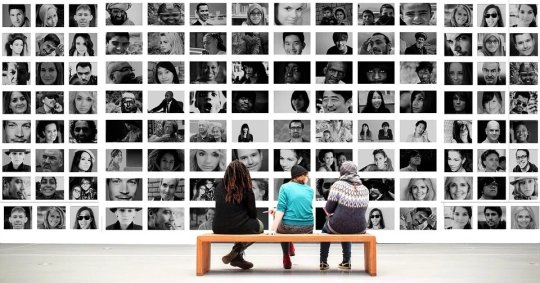#autistic people often struggle with eye contact. that’s cool no problem i can still engage in conversation like that.
Explore tagged Tumblr posts
Text
haha people who have normal relationships with their fathers where they didn’t grow up being constantly made to feel dumb/unimportant/annoying…. what’s that like babes hahaha
#autism doesn’t make you a bad parent. unmanaged/unaddressed autism combined with a general lack of consideration for everyone around you…#now THAT will fuck your kid up.#autistic people often struggle with eye contact. that’s cool no problem i can still engage in conversation like that.#buuut when you’re four and super exited to tell your dad what you did that day and he literally doesn’t acknowledge your presence??#and it’s that across your entire LIFETIME? your entire childhood and teen years and fuck it even your adult life????? THAT SHIT SUCKS#and THEN the only times you CAN get a conversation out of him it’s an argument where he WILL not stop talking over you#and scoffing at every single word you say#and raising his voice as he tells you how stupid you’re being#ummmmmmmmmm yeeaaahhhh okie dokie. a lifetime of that might ummm… lead to a few issues.#oh wait i forgot the third category of interaction: listening to him complain about something absolutely meaningless. for 20mins.#just killing the mood of any conversation.#you’re watching tv it’s fun everyone’s having fun!! yayyy yippee isn’t this nice#and then someone on tv will say ‘up and down the country’ (goofy but harmless phrase) and suddenly all you can hear is a rant#about the banality of overused idioms and phrases.#LIKE!! can you fucking lighten up for five fucking seconds. please.#idk man. my mum and i spent our whole morning travelling out to some random shop wayyyy out of our way. requires multiple buses to get there#JUST to get him a birthday present. because we thought it was fun and cute and because it’s very personal to him.#like we built our DAY around this. we spent £120 on this. FOR HIM!! because we thought he’d enjoy it!!!!#and we’re spending all day tomorrow wrapping his presents and hand making cards and planning the cake i will be baking for him#and he gets home from work and. IMMEDIATELY starts picking a fight.#like we had a lovely day. we had SUCH a good day. and a lot of it was about doing stuff FOR HIM for HIS BIRTHDAY!!!#which we were HAPPY AND EXITED TO DO!!!!!#and he fucking ruins the whole thing.#now my mum is sleeping on the sofa because she’s so angry at the way he was talking to me and i’m typing this bullshit.#and. he just. he doesn’t care. he doesn’t get it. he literally cannot comprehend why we’re upset at him.#he can’t see anything from anyone else’s perspective. he can’t comprehend the idea that maybe just maybe HE was the one being unkind.
9 notes
·
View notes
Text
The Silver Screen Savant, pt 2- the Meh, the Bad and The yikes.
Hello Writers!
Last time here on Starry Starry Write, I talked a little about Autism in the media and my personal experiences therein. Today, I’d like to go a little broader, and tackle the topic from a macro perspective.
In recent times, you’ve probably heard “Representation Matters” oft repeated. Especially in prominent talking spaces like social media. But what does that mean, exactly?
Why “Representation Matters,” and how.
The short answer:

Diverse representation in media tells us that everyone has a place in the world. That everyone’s story matters.
The long answer:
It’s no secret that we begin engaging with media at a young age. When I was growing up in the 90’s and 00’s, TV and video games were often the babysitters of my peers. I was one of the few kids in my neighborhood whose parents weren’t divorced. The kids I knew? Not so much. Most of them were raised by single parents, grandparents and of course-the boob tube. I personally prefered books, when my mom wasn’t yelling “it’s too nice out to be holed up in that dark bedroom!”
Now, don’t mistake my preference for some kind of intellectual superiority. I watched plenty of TV too. Besides, books aren’t magically out of the equation. Printed material is our oldest form of media. And- often just as problematic. Though I will say- I saw a much broader range of people on covers adoring library shelves than I ever did titles on a TV roster. But, I digress. The point is: for many of us, consuming media begins at an early time of our life. And that’s where the problem starts. Even in my childhood, where The Magic School Bus, Hey Arnold, and Sesame Street showed people of all kinds, I can point to many that did not. Especially not people like me. Which did me a grave disservice. I didn’t know I was on the spectrum for a long time, and when I finally found out, I was horrified, thanks to what I had seen on TV.
Because media is not only a wonderful way to learn about people that don’t look, act or sound like us. It also informs our ideas of who we are, and what we can be. Whether we like it or not: it shapes how we understand the world. And it doesn’t stop with Childhood.
Time Changes Much, but not all.

Things are better now. Well, a little bit, anyway.
As an adult, I see more people like me on the screen nowadays. Which is nice.
Ish.
Why “ish?” Well…
Frequently, these “noticeably different” characters (read: Autistically coded) are branded “NOT AUTISTIC!” You heard it here first, folks! That one character (insert your favorite) is Totally Not Autistic. Despite being written in a way that gives every indication otherwise.
*Facepalm*
Now for some examples, which we’ll call the “Meh,” “The Bad” and the “Yikes.” For “fun,” we’ll also go into the off-air perceptions of the characters.
The “Meh.”

First on the list is Dr. Spencer Reid, from CBS’s “Criminal Minds.”
Dr. Reid is the youngest member of the FBI’s Behavioral Analysis Unit, having joined at the age of 22. He holds three B.A degrees in Sociology, Psychology and Philosophy, as well as three Ph.D’s in Engineering, Chemistry, and Mathematics.
He also has the social skills of a limp dishrag. Wait, what’s that? High Intelligence + Low Social Awareness? Hmmm…Then there’s his restrictive behavioral patterns, obsessive interests, and general “quirkiness!” that we could talk about. But let’s hear a quote from the actor who plays him, Matthew Gray Gubler:
“..an eccentric genius, with hints of schizophrenia and minor autism, Asperger’s Syndrome. Reid is 24, 25 years old with three PH.D.s and one can’t usually achieve that without some form of autism.”
Hoooo-boy. I could go into all the things wrong with this, including why the term “Asperger’s” is both horrific (TW: Eugenics,Ableism, N*zis) and harmful. However, today we’ll simply leave it with the fact that this term is no longer applicable, having been reclassified in 2013 as part of Autism Spectrum disorder.
The “Bad.”

Next up, we have Will Graham, from NBC’s Hannibal.
Like our first example, Will works for the FBI. He’s a gifted criminal profiler with “special” abilities, namely hyper empathy, which allows him to reconstruct the actions and fantasies of the killers he hunts. He’s intellectually gifted, hates eye contact, socializing, and prefers to spend…most of his time…alone.
Oh dear. Haven’t we been here before? But, I mean, he doesn’t have Autism! The show runner says so!
For Will Graham, there’s a line in the pilot about him being on the spectrum of autism or Asperger’s, and he’s neither of those things. He actually has an empathy disorder where he feels way too much and that’s relatable in some way. There’s something about people who connect more to animals than they do to other people because it’s too intense for whatever reason.
You can’t see me right now, but I’m cringing. A lot. This is just…ugh. I mean, for starters, I know a handful of autistic people who struggle with hyper empathy, which can make social situations overwhelming and hard to navigate. In fact, I happen to be one of them. Plus, there’s a cool little thing about how, frequently, people on the spectrum more readily identify with animals. But, y’know. Who am I to say? I’m just someone, one of many, who’s dealt with this my whole life.
Now, onto the “Yikes.”

*sigh*
And finally, we have BBC’s Sherlock, a modern adaptation of Sir Arthur Conan Doyle’s renowned “consulting” detective, and probably the most famous fictional character of all time.
Now, I’ll start by saying that the BBC incarnation is not the first to be Spectrum labeled. In fact, Sherlock was my childhood hero, and the first “person” I saw referred to this way. My aunt, an avid reader herself, casually remarked to a friend “I’ve always wondered if Holmes is Autistic,” after I came yammering on about how fantastic the books were. Had I not been champing at the bit to get back to my reading, I might have asked her what that meant.
I also believe this fandom driven speculation is why many detective type characters (see above) are often coded as Autistic, intentionally or otherwise.
In this New York Times article, Lisa Sanders, M.D. describes Holmes traits:
He appears oblivious to the rhythms and courtesies of normal social intercourse — he doesn’t converse so much as lecture. His interests and knowledge are deep but narrow. He is strangely “coldblooded,” and perhaps as a consequence, he is also alone in the world.
Now, before we go any father, let me take a moment to defend his creator. During the time Sir Arthur Conan Doyle first created his most famous work, Autism was not known. That isn’t to say it didn’t exist. We’ve always existed. In fact, it’s now believed that the Changeling Myth, a common European folk story, was a way to explain Autism. In one telling (there are a few) children displaying “intelligence beyond their years” and “uncanny knowledge” were imposters, traded out by Fae creatures for offspring of their own. Children believed to be “Changlings,” regretfully, often came to a bad end. A chilling reminder that the stories we tell impact our real lives.
So while Autism was at least somewhat recognized, it did not become its own official diagnosis until 1943.
Meanwhile, Sherlock Holmes was first published in 1892. Now, as a writer who often draws from my personal reality, I imagine Doyle probably “wrote what he knew,” which is to say, acquainted with one or more Autistic people, he used them as inspiration.
On the other hand…
BBC’s Sherlock first aired in 2010. And while one might argue that the writers simply capitalized on the Autistic fan-theory, or took already available traits and exaggerated them for their version… they left a lot to be desired. Autism aside, this new Sherlock is…well…an asshole. Narcissistic, abusive and egocentric (to name a few) he sweeps his caustic behavior under the rug of “high functioning sociopath,” and blytly ignores the consequences.
Which is a major problem. Because while doing this, he’s still “obviously” (at least in the Hollywood sense) Autistic. In my previous post, where I said some characters are “too smart™, and logical© to ever have feelings, friends or empathy,” this is what I meant.
This is bad. We’re looping right back to Representation Matters. Bad representation, and the navigating of such, is just as important for writers to think about as good representation. Maybe even moreso. Because bad representation paints real people into cardboard, stereotyped people-shaped things. It otherizes. And it’s harmful. You would not believe the people I’ve met assume I’m not Autistic because I’m not an egotistical jerk. Why? Because they watched, you guessed it, BBC Sherlock.
Confession time:

Now here’s my little secret:
I love all of these characters. They are some of my favorite on tv. Why? Because for good or ill, I recognize myself in them. Finally, I can turn on the TV, and see myself. Or, somewhat, anyway.
My favorite character out of this list? Loath though I am to admit it… Is Sherlock. See, what those well meaning folks didn’t know (the ones who say I’m I’m “too nice,” to be Autistic) is… well, if we’re being honest, I wasn’t always nice. A few years ago, I was that guy. I was a jerk because I thought I was the smartest person in the room. Which is really not a good look. In fact, sitting down and watching the first season of sherlock, (around three or four years after it came out) made me realize how much of a jerk I actually was.
There are other things there too. Things that tie me to all these characters, that I didn’t list. But that’s for another today.
For now, I’d like to add a caveat or two:
1) I’ve watched all the shows listed above, and adore them. As I mentioned, Sherlock is my favorite. He’s also the one I’ve watched the most (Repeatedly, in fact. Whoops.) and I recognize it’s not all bad. In the end, he learned to treat people better (somewhat) and certainly became more human over time. And, there are other deeply problematic elements of the show I’d like to tackle, eventually.
*cough* Queerbating! *cough*
2) I’m well aware that the above cases are all thin, white, able bodied, “straight” males. But I chose these characters for a couple of reasons. One, they’re the most prominent type on TV. Again, we loop back around to representation, and why we need more positive, diverse examples of it.
And finally-
3) In my last post, I mentioned I’d give some “good” instances of Hollywood Autism trope. But I didn’t exactly do that. Partially, because half way through, I thought…perhaps…I’m not the best to judge what might be a good Autistic character. I mean, I’m sure someone will read this and think my current aforementioned characters are fine. Heck! They might even argue my perception here, and say the characters are just fine. I accept that. In my life, both on and off the page, I recognize that I cannot, should not (and don’t want to) speak for an entire community.
Because of this, I cannot tell you how to write a “good” Autistic character, or what media is “acceptable.” I can’t even really tell you what a bad character is. Sure, I have a lot of opinions about it. But- if you’re on the spectrum and like and identify with the above? That’s fine. I mean, even with all the problems I noted (and some I didn’t) I certainly do.
On the other hand, if you’re a writer, and you want to write a character from this (or any, for that matter) community you aren’t part of, I caution you.
Do your research. Preferably from multiple credible sources.
Talk to people on the spectrum about what it’s really like. (Though try to steer clear of asking for emotional labor.You could, say, hop on reddit and ask the community there, for instance, which is a no pressure way to obtain potentially decent info.)
Finally, whatever you do, remember this-
Autistic people can look like anyone. We can act, and think and be different, like anyone. We are real, living, breathing people. Not robots, not sob stories, not tropes. People. So if you write about us, write us like people. And your work will be all the better for it.
-Your Loving Vincent
#autism#autistic problems#actually autistic#autistic experiences#autistic life#media#hollywood#film#TV#television#will graham#nbc hannibal#hannibal#sherlock#bbc sherlock#criminal minds#arthur conan doyle#writers on tumblr#writing#writers#tropes#spencer reid#autism in media#representation matters#autistic representation#liturature#own voices#do your research#emotional labor#caution
7 notes
·
View notes
Text
Getting Diagnosed: 2
After I had been referred for assessment, I was apparently seen in school by a Community Paediatrician. I don’t actually remember any of this, but apparently the meeting was fairly short and, according to my parents, I asked some rather blunt, inappropriate questions, such as asking whether the doctor (who I assume had an accent) was speaking English. Now, I can get how embarrassing and rude that must’ve been, but at the time I probably only asked because I was struggling to understand them (I still struggle with strong accents sometimes, or even no accents when overwhelmed, but I wouldn’t ask that now!).
The paediatrician basically summarised that whilst I showed quite a lot of traits of Asperger’s Syndrome, they wanted to wait and get more information before coming to a conclusion, which is fair enough. The appointment was fairly short, and it can be very difficult to get a full view of someone’s development after only a single, short, meeting.
At this point, my parents started looking into private options. For readers outside of the UK: most British people don’t use private healthcare, as we rely upon the NHS for many, if not all, of our medical needs. It is not common for people to buy private healthcare. It tends to allow you to essentially jump from a long queue to a shorter queue, and can mean longer appointments. Nowadays, the NHS still provides amazing physical healthcare. However, it’s mental healthcare has long waiting lines. Once you finish waiting, the care can be great. But many are forced to wait for months, if not years, for assessments for disorders like ASD.
Luckily for us, my dad had private healthcare from his employers (again, not a very common occurrence as far as I know) so we were able to seek private help. I saw a Child Neuropsychologist for around an hour a week for 6 weeks (as far as I remember). This allowed her to get to know me better and see me for longer. Rather than just seeing me once, she saw me across a longer timeline and therefore had a better understanding of my problems.
From what I remember, essentially I went to a lady’s house every week, and sat with her in the kitchen whilst my parents waited in a little room with a sofa. I remember we would do a variety of tests, that I actually enjoyed because they seemed like puzzles. For example, I remember I had to read a paragraph and recall some of it (not really interesting), and decode some symbols (way more fun). So I thought that was pretty cool, even if I didn’t actually really know what was going on or why. To be honest, I don’t remember caring that much. Maybe I thought it was tutoring, or some kind of test for school.
I did not realise my social skills were also being assessed, which is actually very good as it meant I would not have been tempted to camouflage any ‘odd’ things I did. At that point, I wasn’t really aware of which of my behaviours were considered ‘weird’, or which of my social skills were lacking. All I really knew was that I did not understand people and most of them did not understand me. I would much rather read than socialise, because other people were confusing and stressful. I had no clue why every other child could easily make friends, but rejected me almost instantly. Even according to my diagnosis, most of my classmates apparently found me annoying, whilst a few ‘tolerated’ me. So overall, I understood that I was not behaving ‘normally’, but I had no clue how to figure out what I was doing ‘wrong’ or how to change it.
Anyway, one specific aspect of the social evaluation always stood out to me. I remember at one point the Neuropsychologist told me I could bring in toys if I wanted. I took this to mean that I ought to bring some toys in, and therefore took some Sylvanian families toys in to the next meeting. From my own perspective, she never brought the toys up during the session, which confused me. I assumed I was meant to play with them, because why else would she have told me I could bring them? So I just stopped a task and played with them, because I wanted to and because I thought that was what I was supposed to do. Now, according to my assessment, “[I] would suddenly break away from a task we were in the midst of to take out a toy to play with”. Which, whilst technically true from the view of an observer, does not really fully explain my behaviour. As a side note, that is one of the main problems I find in many aspects of autism research. Many researchers make assumptions from their own, non-autistic perspective, and often assume that is the only possible reason for engaging in a certain behaviour. They often also use autism theories to explain them, which again may rely upon inferences. If the Neuropsychologist had asked why I brought the toy out I could have told her (which is not possible for many non-verbal autistic people).
Other than the above though, the Neuropsychologist noted a lot of my autistic traits. She reported after around 20 minutes I started to get fidgety in my chair (something still true today!) and was very observant of visual details. I did not engage in conversation without prompting, and made variable, occasionally inappropriate eye contact. I apparently lacked a ‘Theory of Mind’. I agree that at that point, I did not really have a well developed ToM, but now I do believe I have a fairly good ability to understand and empathise with other people, if I can figure out what they are feeling and why. I think this ToM developed in secondary school, when I essentially realised and reluctantly accepted that others did things for reasons I did not know, and would not tell me. I did not understand why others did seemingly inexplicable things, and kind of took too long to realise they don’t automatically know what I mean or experience.
When she did IQ tests, she found I had an uneven skill-set. I won’t say what my exact IQ scores were, because many people (myself included, some of the time, unless it is specifically asked) find it pretentious. But basically I did very well on the ‘Perceptual Reasoning Index’ which had stuff like visualising 3D objects I think, and a lot lower on my ‘Working Memory’, ‘Verbal Comprehension’, and ‘Processing Speed Index’. I also had a very low executive skill score, along with a low visual-motor skill score. That is the reason I was allotted extra time in exams; my processing speed is far slower than would be expected from the other scores.
At the end of all of this, I was diagnosed with Asperger’s Syndrome. In more recent documents, this is usually referred to as ‘High Functioning Autism’ of ‘Autism Spectrum Disorder’, as Asperger’s is no longer diagnosed in the DSM-5. My parents told me about the diagnosis a few months after I got it. I remember reading a few notes that suggested they were told to wait until I was around 15-16 to tell me. I am very glad they told me earlier, as it meant I no longer felt like I was just failing at socialising whilst everyone else was passing without even trying. I do not exactly remember how they told me, but I think my reaction was a little anti-climactic, as I had never really heard of autism or Asperger’s before that, which is probably good as I did not have to deal with all of the fear mongering in the media. I had no previous assumptions about autism, other than ‘huh, that’s a thing that I have that explains why I struggle with social stuff’. Once I started researching autism, it was amazing to read other people’s accounts and just think ‘hey! I do that!’ and feel like you weren’t the odd one out any more.
My actual diagnostic assessment had a lot more in it (it’s a fairly long document), but I’ve kept it brief because it’s quite personal, and because this post is already pretty long.
From what I’ve read and seen, diagnostic assessments have changed a lot over the past few years. It can apparently take months, even years, for that fairly short initial appointment. I was also lucky to have a Neuropsychologist who was aware of the differences in how autism often presents in females vs males. Nowadays, there is more attention being paid to autistic females who may have gone undiagnosed, which is hopefully a step in the right direction.
#autism#diagnosis#actually autistic#aspergers#high functioning#autism level 1#blog#blogging#blogger#autism blog#autistic blogger#girls have autism too#autistic adult#StimSensory#stim#sensory#stimming#stim toys#sensory toys#school#childhood#assessment#disability#ASD#neuropsychologist#psychology#neurodiversity#social#socialising#IQ
19 notes
·
View notes